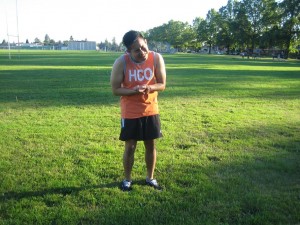Itching is a sensation of skin irritation that happens on any part or in several areas at a time and it is not a condition or a disease but it can be a symptom of some underlying health problems. Itching also called pruritus creates an urge to scratch a rash, bumps and blisters found on the skin. Scratching causes a severe itching and makes the condition worse and can cause complications such as neurodermatitis, scarring, permanent damage of the skin and other bacterial infections.
Symptoms of itching can be localized which affects only small areas of the arms or legs, back or face and if it is generalized itching, it can affect the whole body with no apparent cause. There are blisters, rashes and red skin that go along with the itchy dry skin and leathery texture of the skin caused by constant scratching and cracked skin. Sometimes, itchiness becomes severe at night, itching lasts for long periods of time and causes anxiety and stress.

Common causes of itching
- Dry skin
- Insect bites
- Aging
- Contact dermatitis caused by exposure to poison ivy
- Parasites of the skin such lice and worms
- Condition of the skin such as psoriasis
- Allergies to irritants particularly wool, chemicals and soap
- Hives
- Anemia
- Chickenpox and measles
- Exposure to the sun
- Reaction to certain medications
- Stress and anxiety
- Skin infection
- Fungal infection
Treatment and home remedies for itching
- Apply cold compress on the affected skin helps in relieving itchiness or take a cold shower. Another way is by pouring cool running water over the affected areas. Avoid taking hot water baths or showers.
- Wear loose cotton clothes especially to bed, apply a moisturizer or skin lotion in order to keep the skin hydrated and avoid overexposure to heat and humidity that causes sweating and makes the itching worse.
- Drink a glass of aloe vera juice in the morning since it helps in making the skin moisturized and treats any condition of the skin.
- Massage the dry skin using fresh milk cream since it has a natural moisturizer effect and prevents the skin from becoming dry.
- Soak the body in bath using lukewarm water mixed with oatmeal or cornstarch since they help in minimizing the pain. Apple cider vinegar can be added to the water to help with the itchiness.
- Avoid foods that are high in protein content that causes allergic reaction to the skin such as nuts, milk, eggs and soy.
- Keep the nails short in order to avoid making the condition worse.
- Wear gloves when sleeping in order to help avoid scratching.
- Use a mild detergent when washing clothes and avoid exposing the skin to metals, beauty products and perfumes that could cause allergic reaction on the skin.
- Use a high quality moisturizing cream since it helps in minimizing the scratching which works by relaxing the skin and reduces the itchiness.
